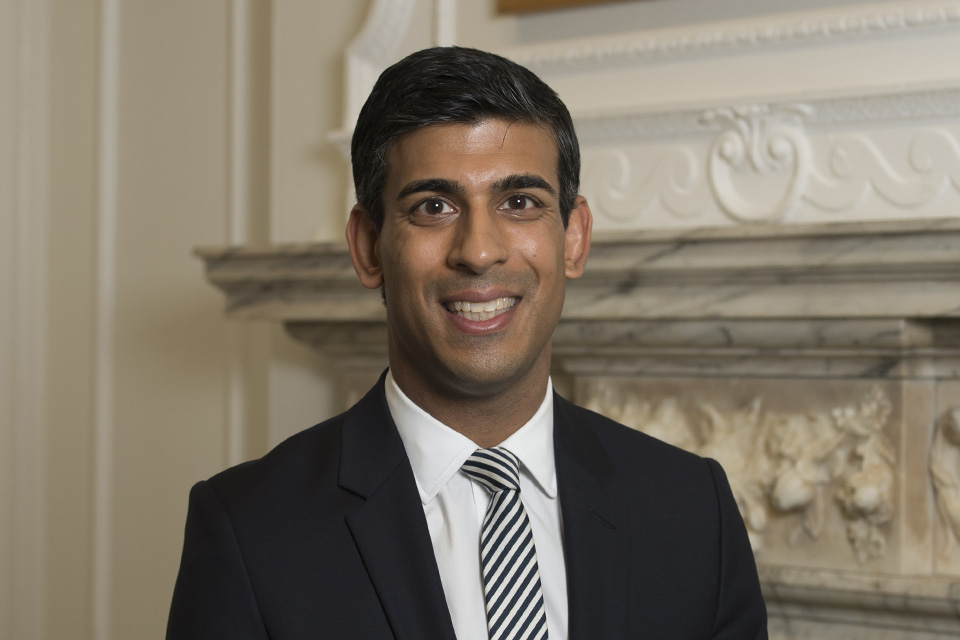
Rishi Sunak announced that National Insurance starting thresholds will rise to £12,570 from July, meaning hard-working people across the UK will keep more of what they earn before they start paying personal taxes.
The cut, worth over £6 billion, will benefit almost 30 million working people with a typical employee saving over £330 in the year from July. This means the UK now has some of the most generous tax thresholds in the world.
Mr Sunak also announced that fuel duty for petrol and diesel will be cut by 5p per litre from 6pm tonight (23 March) to help drivers across the UK with rising costs, a tax cut worth £2.4 billion. This is the biggest cut ever on all fuel duty rates and means a one-car family will now save on average £100.
To let people keep more of what they earn, the basic rate of income tax will also be cut by 1p in the pound in 2024, when the OBR expect inflation to be back under control, debt falling sustainably and the economy growing. The cut is worth £5 billion for workers, savers and pensioners and will be the first cut to the basic rate in 16 years.
The Chancellor also set out a series of measures to help businesses boost investment, innovation, and growth – including a £1,000 increase to Employment Allowance to benefit around half a million smaller firms.
Delivering the Spring Statement, Chancellor Rishi Sunak said: This statement puts billions back into the pockets of people across the UK and delivers the biggest net cut to personal taxes in over a quarter of a century.
Like our actions against Russia, I have been able to do this because of our strong economy and the difficult but responsible decisions I have had to make to rebuild our finances following the pandemic.
Cutting taxes means people have immediate help with the rising cost of living, businesses have better conditions to invest and grow tomorrow, and people keep more of what they earn for years to come.
Delivering the statement, the Chancellor made clear that our sanctions against Russia will not be cost-free for people at home, and that Putin’s invasion presents a risk to our economic recovery – as it does to countries all around the world.
However, announcing the further measures to help people deal with rising costs, he said the extra support could only be provided because of the UK’s strong economy and the tough but responsible decisions taken to rebuild our fiscal resilience.
The immediate help for people with the cost of living and support for businesses comes as part of a wider Tax Plan announced by the Chancellor that will also create better conditions for growth and will share proceeds from growth more fairly – ensuring people can keep more of what they earn.
Help with the cost of living
The Chancellor said that global supply chain issues following the pandemic, as well as Russia’s invasion of Ukraine, are driving up the cost of living for families across the UK.
To combat this, he announced that from 6pm this evening (23 March) fuel duty will be cut by 5p per litre for 12 months – worth £2.4 billion for hard-working families across the UK.
To ease cost of living pressures for almost 30 million employees, the Chancellor announced that from July 2022, National Insurance thresholds will rise to £12,570 to align with the income tax personal allowance. This simplification means that, from July, 70% of workers who pay NICs will pay less of it, even after accounting for the Health and Social Care Levy. Of those who benefit from the threshold increase, 2.2 million people will be taken out of paying NICs altogether.
To ensure more people can keep more of what they earn for years to come, the Chancellor also announced plans to cut the basic rate of income tax from 20p to 19p from 2024. The historic £5 billion tax cut for workers, pensioners and savers will be worth £175 on average for 30 million people and will be the first cut to the basic rate in 16 years. This will be delivered in a responsible and affordable way, while continuing to meet our fiscal rules.
Mr Sunak also announced that there will be an extra £500 million for the Household Support Fund, which doubles its total amount to £1 billion to support the most vulnerable families with their essentials over the coming months. The Chancellor also reduced the VAT on energy saving materials such as solar panels, heating pumps and roof insulation from 5% to zero for five years, helping families become more energy-efficient. This cost of living support comes on top of the measures that the Chancellor has already announced over the recent months to support families. This includes a £9 billion energy bill rebate package, worth up to £350 each for around 28 million households, an increase to the National Living Wage, worth £1,000 for full time workers, and a cut to the Universal Credit taper, worth £1,000 for two million families.
Boosting Investment, Innovation and Growth
To lift growth and productivity among UK businesses, Mr Sunak set out plans to boost private sector investment and innovation and bring in a new culture of enterprise.
He increased the Employment Allowance – a relief which allows smaller businesses to reduce their employers National Insurance contributions bills each year – from £4,000 to £5,000. The cut is worth up to £1,000 for half a million smaller businesses and starts in two weeks’ time, on 6 April. As a result, 50,000 of these businesses will be taken out of paying NICs and the Health and Social Care Levy, taking the total number of firms not paying NICs and the Levy to 670,000.
The Chancellor also announced two new business rates reliefs will be brought forward by a year to come into effect in April 2022. There will be no business rates due on a range of green technology used to decarbonise buildings, including solar panels and batteries, whilst eligible heat networks will also receive 100% relief. Together these will save businesses more than £200 million over the next five years.
Ahead of the end of the super-deduction, the government will work with businesses and other stakeholders to consider cuts and reforms to best support future investment. And with UK employers spending just half the European average on training their employees, the Chancellor said he will examine how the tax system – including the operation of the Apprenticeship Levy – can be used to encourage employers to invest in adult training.
The Chancellor committed to improving R&D reliefs too. UK business R&D investment is less than half of the OECD’s average as a percentage of GDP, so R&D tax reliefs will be reformed to deliver better value for money for the taxpayer while being more generous where they can make the most difference. The scope of reliefs will also be expanded to cover data, cloud computing and pure maths.
The support for SMEs comes on top of 50% business rates relief for eligible retail, hospitality, and leisure properties, also coming in this April and worth £1.7 billion for small businesses. The Help to Grow Management and Digital schemes, worth thousands of pounds per business, and the £1 million Annual Investment Allowance are also available to continue supporting UK businesses.
Kindly follow us on twitter:@AfricanVoice2










